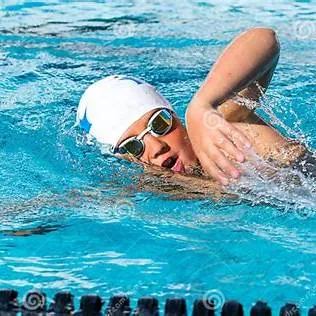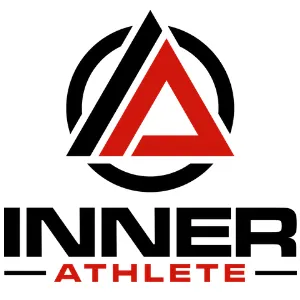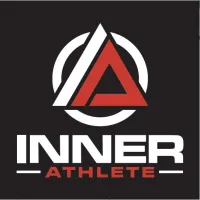UNIT 13, 49 GRANGE ROAD, CHELTENHAM, MELBOURNE, VICTORIA, 3192
Inner Athlete Blog

Cultivating Success in Young Swimming Athletes
Youth swimming is one of the most demanding and technical sports, requiring not just skill in the pool but also resilience, discipline, and balanced development outside of it. In a recent Inner Athlete Podcast episode (Ep. 96), Trent sat down with coach Billy Zebra to discuss key insights from their work with Melbourne Swimming Club and young athletes. Together, they highlighted what it truly takes to nurture success while avoiding burnout.
The Evolution of Strength & Conditioning
Strength and conditioning (S&C) has come a long way since its origins in 1950s American football at the University of Nebraska. What was once a niche training approach has become a cornerstone of athletic development across all sports, including swimming. With the support of modern sports science, S&C now involves data-driven methods to help athletes peak at the right times while minimizing the risk of overtraining.
Coach Billy, currently completing an honors degree focused on GPS tracking and load management, brings this modern approach to swimming. By monitoring training intensity and recovery, athletes can avoid injuries and maximize performance gains.
The Dangers of Early Specialization
One of the biggest challenges in youth swimming is early specialization, when children focus exclusively on swimming to the exclusion of all other activities. While this can accelerate technical skills in the short term, it often leads to: - Overuse injuries and muscular imbalances - Burnout and loss of motivation - Limited athletic development outside of the pool
Trent and Billy argue for a more generalized approach, where swimmers also engage in sports like track and field or gymnastics. These disciplines build explosiveness, coordination, strength, and flexibility—all traits that transfer back into stronger swimming performance.
Building Balanced Athletes
Young athletes (particularly those aged 10–13) benefit greatly from training that includes: - Plyometrics – to enhance explosiveness and power - Low-level speed training – to build agility and quickness - Strength and mobility exercises – to improve posture and injury resilience
This well-rounded approach ensures swimmers not only progress in the water but also develop a strong athletic foundation for long-term success.
Individualized Training in Group Settings
Even when working with squads of swimmers, Trent and Billy emphasize treating each athlete as an individual. Every child has different strengths, needs, and personalities. By tailoring training within a group framework, coaches can:
Prevent burnout by balancing loads appropriately,
Support athletes through physical and emotional challenges,
Encourage steady, personalized growth rather than one-size-fits-all results.
Beyond the Pool: Growth Mindset & Discipline
The conversation also reinforces that swimming success isn’t just physical—it’s mental. Developing a growth mindset helps young athletes embrace challenges, learn from setbacks, and focus on effort rather than just outcomes. Meanwhile, discipline provides the foundation for consistent training and progress, often outweighing raw talent in determining long-term achievement.
Final Thoughts
Cultivating success in young swimmers means going beyond just swimming laps. It requires a balance of strength and conditioning, cross-sport development, individualized training, and the mental skills to handle the ups and downs of sport. By focusing on the whole athlete, not just their performance in the pool, we can help young swimmers thrive, both in competition and in life.
Key Takeaways: - Early specialisation carries risks:
Encourage multi-sport participation.
Strength & conditioning, combined with modern sports science, enhances performance.
Plyometrics, speed, and mobility training build stronger, more resilient athletes.
Individualization prevents burnout and maximizes growth.
Growth mindset and discipline are just as important as physical training.
To find out more,🎧 listen to our full podcast episode: Ep. 96: Cultivating Success in Young Swimming Athletes or 👉 Watch on YouTube.
Got questions? Contact our team to see how we can support your child’s athletic journey.
Book A Free Discovery Call
By providing your number you consent to receive marketing/promotional/motification messages from Inner Athlete. Opt-out anytime by replying STOP. Msg & Data rates may apply
Apply Today
Lorem ipsum dolor sit amet, consectetur adipiscing elit, sed do eiusmod
STEP 1
Submit Your Application
Lorem ipsum dolor sit amet, consect adipiscing elit, sed do eiusmod tempor incididunt ut labore et dolore
STEP 2
Go Through The Interview Process
Lorem ipsum dolor sit amet, consect adipiscing elit, sed do eiusmod tempor incididunt ut labore et dolore
STEP 3
Start Coaching
Lorem ipsum dolor sit amet, consect adipiscing elit, sed do eiusmod tempor incididunt ut labore et dolore
Contact Us
Email
[email protected]
Address
13/49 Grange Rd, Cheltenham 3192 (opp. DFO)
Phone 0483 956 560
Follow Us

